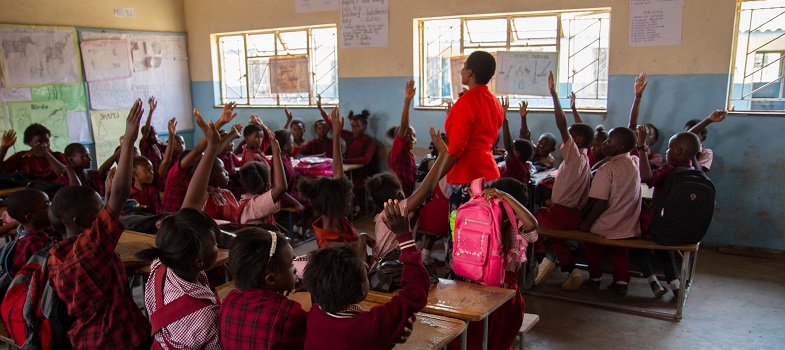Getting started
1. List of Acronyms
MoGE: Ministry of General Education (Zambia)
OER: Open Educational Resources
SBCPD: School Based Continuing Professional Development
SPRINT: Schools Program of In-service Training for the Term
TESSA: Teacher Education in sub-Saharan Africa
TGM: Teacher Group Meeting
WVZ: World Vision Zambia
Welcome to this enhanced SPRINT school-based continuing professional development (SBCPD) programme designed to support active teaching and learning in line with the Zambian Revised School Curriculum. Each course is designed to take one term, so the whole programme will take six terms (two school years) and will be the focus of your Teacher Group Meetings (TGMs) or regular professional development sessions.
It is suggested that you study courses 1–3 in year 1 and course 4–6 in year 2. The titles of the courses are:
Year 1
Course 1: Classroom management for learner-centred teaching
Course 2: Inclusive teaching
Course 3: Assessment for learning
Year 2
Course 4: Managing and supporting learner-centred classrooms
Course 5: Literacy across the curriculum
Course 6: Being a reflective practitioner
This SBCPD programme has been developed in Zambia in collaboration with the Ministry of General Education, and 600 teachers and Officials from Chisamba, Kabwe and Mumbwa Districts in Central Province. The Open University (UK) and World Vision Zambia are working with Ministry of General Education as part of a programme called ZEST (Zambia Education School-Based Training) to strengthen the existing SPRINT system and to help teachers implement the Zambian Revised School Curriculum. The work is funded by the Scottish Government and is taking place between 2017 and 2022. The materials can be adapted for use elsewhere, and can be used online, or downloaded as appropriate.
Watch this video from the District Education Standards Officer in Chisamba (Zambia) explaining how teaching practices have changed and how learners have benefitted from this SBCPD programme.
The programme includes short films of activities in different schools in Zambia, and audio recordings about how to use student-centred teaching approaches. These sections are integral to the resources, as they will provide information you need to proceed. You can view or listen to these individually or in groups with other colleagues. After viewing or listening to these sections, it is important that you complete the activity linked to them, reflect on how you can use this in your own teaching and make notes in your Teacher Notebook.
